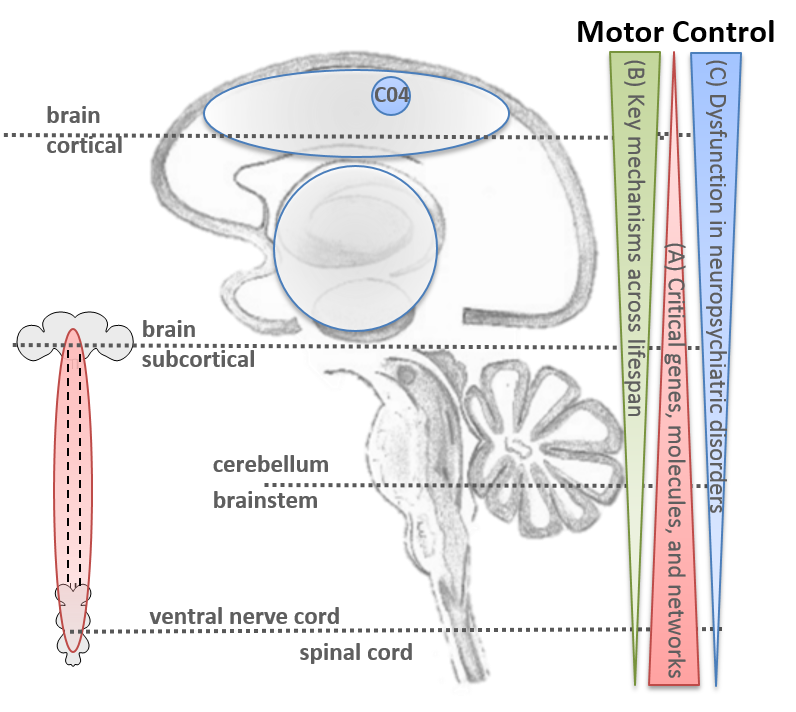Project C04
Apraxia in Alzheimer’s disease: Plastic reorganization of praxis networks in response to chronically progressive dysfunction
©Shutterstock

Project C04 studies the molecular and functional mechanisms underlying neurodegeneration-induced apraxia and its counteracting reserve mechanisms based on the hypothesis that apraxic deficits in Alzheimer’s disease (AD) are associated with the location and extent of tau-pathology in praxis-related cortical networks. Characterizing apraxia in AD at the behavioural (neuropsychological profiling, including the Cologne apraxia screening, KAS), molecular (Tau-PET imaging), and functional (resting-state fMRI) levels will provide fundamental insights into higher motor functions and may identify specific factors contributing to resilience against apraxia.

©MedizinFotoKöln
Prof. dr. Alexander Drzezga
Principal Investigator

©MedizinFotoKöln
Prof. Dr. Peter Weiss-Blankenhorn
Principal Investigator

©MedizinFotoKöln
Dr. Gerard N. Bischof
Postdoc

©MedizinFotoKöln
Sylvia Latarnik
Postdoc

©MedizinFotoKöln
Dr. Elena Jäger
Clinician Scientist
